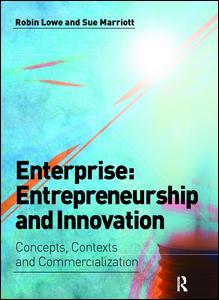Description
Enterprise: Entrepreneurship and Innovation
Skills and Resources for Entrepreneurship and Innovation
Author: Lowe Robin
Language: English
Subjects for Enterprise: Entrepreneurship and Innovation:
Keywords
entrepreneurial; organizations; bbc; news; online; global; monitor; activity; sheffield; SME Sector; hallam; UK Business; Business Case; UK Market; Business Processes; BBC News Online; IRA Prisoner; UK Patent; Total Product Offer; Entrepreneurial Family Background; Stelios Haji Ioannou; Secretary Of State; DTI; SME; Entrepreneurial Organizations; Bbc News; Reflective Practice; Build Competitive Advantage; Action Research Period; UK High Street; NHS Direct Online; Soil Association; Tie Rack; Gaming Boom; Operate Customer Relationship Management Systems
Publication date: 07-2017
· 18.9x24.6 cm · Hardback
Approximative price 42.81 €
Subject to availability at the publisher.
Add to cartPublication date: 05-2006
320 p. · 24.6x18.9 cm · Paperback
Description
/li>Contents
/li>Readership
/li>Biography
/li>
Enterprise, Entrepreneurship and Innovation provides readers with an accessible and readable introduction to the various dimensions of entrepreneurship and market innovation. It has a clear structure that is easy for the reader to follow and it focuses on enterprising behaviour.
Helpful text features include case studies andpause and reflect situations for the entrepreneur to deliberate on the information they have available before making their decision. This helps to emphasise the point that there are few simple and straightforward decisions closely reflecting decisions inreal life. The authors also employ integrative personal development activities that provide a basis for readers to reflect on the learning of the chapters and develop a personal development strategy to increase their ability to become more entrepreneurial and improve their ability to manage market innovation.
After completing the book, readers will understand how to acquire the entrepreneur?s skills, attitudes and knowledge; the techniques needed to generate new business and create a new organisation.
These books may interest you

Entrepreneurship 59.16 €



